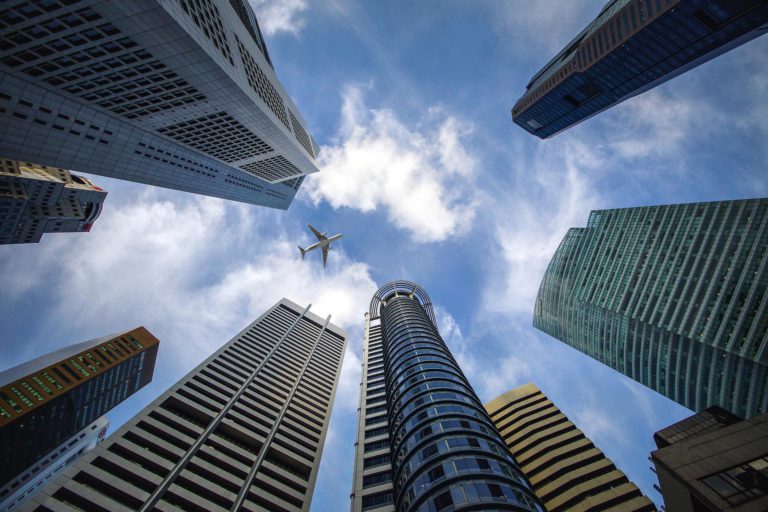Singapore is known for its rigorous immigration policies and high standards for permanent residency (PR) holders. While obtaining PR status is a significant milestone for many foreigners seeking long-term stability in Singapore, it’s essential to understand that PR is not a lifetime guarantee. The Singapore government retains the right to revoke PR status under specific circumstances. Here are the key reasons why your PR in Singapore could be revoked:
1. Failure to Renew Re-Entry Permit (REP)
The Re-Entry Permit (REP) is essential for all PRs who wish to travel in and out of Singapore. It must be renewed every five years. Failure to renew the REP before it expires — especially if you’re outside Singapore — can result in the loss of PR status. Without a valid REP, your PR status is considered void.
2. Prolonged Absence from Singapore
While short-term travel is acceptable, a PR who lives outside of Singapore for an extended period without a valid reason may face scrutiny when renewing their REP. The authorities may view this as a lack of commitment to Singapore, which could result in the REP renewal being rejected or renewed with a shorter period of validity — effectively terminating PR status.
3. Not Gainfully Employed
Singapore PR holders are expected to contribute meaningfully to the country’s economy and society, and long-term unemployment may raise red flags with the authorities. If a PR holder is not gainfully employed for an extended period, especially without valid reasons such as pursuing full-time studies, caregiving responsibilities, or medical issues, their status may come under review. The ICA may interpret prolonged unemployment as a lack of integration or economic contribution, which could ultimately lead to non-renewal of the Re-Entry Permit (REP) or even revocation of PR status. To mitigate this risk, it is advisable for PR holders to maintain active employment or demonstrate efforts to seek work, upskill, or engage in meaningful community involvement.
Alternatively, PR holders may also own and run a business to maintain their PR status, provided the business is actively operating, contributes to the local economy, and fulfills tax and regulatory obligations. This shows economic participation and initiative, which may positively influence ICA’s assessment of your continued residency eligibility.
4. False Information or Misrepresentation
If you obtained PR status by submitting false information or misrepresenting facts — such as fake qualifications, forged documents, or hiding criminal history — your PR can be revoked once the truth is discovered, regardless of how long ago the application was approved.
5. Failure to Fulfill National Service Obligation
Male children or second generation PRs must register for National Service (NS). Avoiding or evading NS obligations can result in the revocation of the individual’s PR status and potentially affect the sponsor’s PR status as well. It may also impact future applications for PR or citizenship.
6. Criminal Offenses and Legal Violations
If a PR commits a criminal offense in Singapore — such as drug-related crimes, theft, assault, fraud, or any serious violation of the law — their residency may be revoked. The Immigration and Checkpoints Authority (ICA) takes a strict stance against residents who compromise public safety or violate the legal framework.
7. National Security Concerns
Any PR found to be involved in activities that threaten Singapore’s national security or social harmony including terrorism, radicalisation, espionage, or subversive acts, risks immediate revocation of their PR status. Singapore places national security as a top priority, and affiliation with any extremist ideology or movement can result in deportation.
What To Do When Your Singapore PR Has Been Revoked: Submit a Reinstatement Application to ICA
Losing your Singapore Permanent Resident (PR) status can be distressing, especially if you’ve built a life, career, or family in the country. However, in certain circumstances, you may be eligible to appeal the revocation and apply for reinstatement. Here’s what you need to know about submitting a reinstatement application.
1. Understand the Reason for Revocation
Before you proceed, clarify the reason your PR was revoked. Common causes include:
- Prolonged absence from Singapore without valid re-entry permits
- Violation of immigration laws
- Misrepresentation or fraudulent information in your application
- Criminal offenses
Understanding the grounds for revocation helps you assess the strength of your appeal and prepare the necessary documentation.
2. Check Eligibility for Reinstatement
Not all PR revocations are eligible for appeal. If your status was revoked due to serious violations or criminal activity, chances of reinstatement are slim. However, if your PR was revoked due to administrative lapses—such as failure to renew your Re-Entry Permit (REP)—you may have a valid case.
3. Gather Supporting Documents
Prepare a compelling case by collecting documents that support your reinstatement request, such as:
- A letter explaining your situation and reasons for reinstatement
- Proof of strong ties to Singapore (e.g., family, employment, property)
- A valid job offer or employment pass
- Testimonials from employers, community leaders, or Singaporean citizens
4. Submit the Reinstatement Appeal
Appeals should be submitted to the Immigration & Checkpoints Authority (ICA). While there is no standardised form for reinstatement, you should write a formal appeal letter addressed to the ICA, including:
- Your full name and FIN number
- Details of your PR revocation
- A sincere explanation and reasons for requesting reinstatement
- Attach all supporting documents
You may email or mail your appeal to ICA or submit it through their official feedback form on the ICA website.
5. Follow Up and Wait for a Response
ICA will review your appeal and inform you of the outcome, typically within several weeks to a few months. Be patient and avoid making any travel or employment plans that depend on your PR status until a decision is made.
Preventing Singapore PR Revocation
Holding a Singapore PR is a privilege, not a right. The government grants this status to individuals who demonstrate value to the country through legal compliance, economic participation, and social integration. To maintain your PR, it’s crucial to stay informed, act responsibly, and fulfill all duties expected of a resident.
If you are unsure about any PR obligations or face complications related to your status, consult the ICA or seek advice from an immigration professional such as IASG to avoid unintentional violations.







